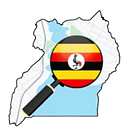The Africa Digital Access Initiative, Bridging the Digital Divide
OpenStreetMap in Schools Initiative
In a world that is continually evolving digitally, the need for education that enhances digital literacy has never been more critical. This is particularly true in rural areas of developing countries like Uganda, where there is often a digital divide. With this in mind, the OpenStreetMap in Schools program is stepping up to make a difference, by providing access to digital learning resources and integrating ICT tools, and geospatial mapping learning materials, this initiative is not only empowering students and teachers but also transforming communities.
Bridging the Digital Divide with OpenStreetMap
OpenStreetMap (OSM) is an open-source mapping tool that anyone with internet access can use to contribute to a global map. This user-generated map provides invaluable data for various sectors, from disaster response to urban planning. OpenStreetMap Uganda, through the OpenStreetMap in Schools program, introduces this powerful tool to young minds and teachers, fostering digital literacy and engagement in community development.
Since its launch, the OpenStreetMap in Schools program has extended its digital literacy and geospatial mapping training to 33 schools across rural Uganda. Each visit serves not only as a means to equip students and teachers with valuable digital skills but also as an opportunity to help communities better understand and utilize geospatial mapping.
Empowering Teachers and Students with Digital Skills
Investing in teachers is a crucial part of the program. By training teachers, the OpenStreetMap in Schools program ensures that the knowledge imparted is sustainable and can continue to benefit students long after the initial training. The program has already trained over 128 teachers, equipping them with the skills to incorporate ICT tools and geospatial mapping into their curriculum.
In addition, the initiative has directly reached over 12,937 students, equipping them with the skills to leverage digital tools through OpenStreetMap. These students, equipped with the ability to use a computer, and contribute to and utilize the map, can become agents of change in their communities.
Impact Beyond the Classroom
The OpenStreetMap in Schools program goes beyond the classroom walls, reaching into communities. By providing schools with digital mapping tools and training, the initiative is empowering communities to better understand their localities, contribute to the global map, and apply this information for their development by tracking resources available within their vicinity like water points, health centers, police stations, schools, and more.
The OpenStreetMap in Schools program is undoubtedly making a tremendous impact in Ugandan schools. Promoting digital literacy and teaching geospatial mapping skills is empowering to students, teachers, and entire communities. The program serves as an exemplary model of how technology can be used to boost education and community development, even in the most remote and under-resourced areas.
As the program continues to expand and touch more lives, one thing is for sure: the impact of OpenStreetMap in Schools is far-reaching and transformative. It truly is a testament to the power of digital tools in shaping our world.
With collaboration and support from the community, we are looking forward to extending this program further in East Africa and Africa at large.
Author: OpenStreetMap Uganda
Writer: Donitar Orishaba
